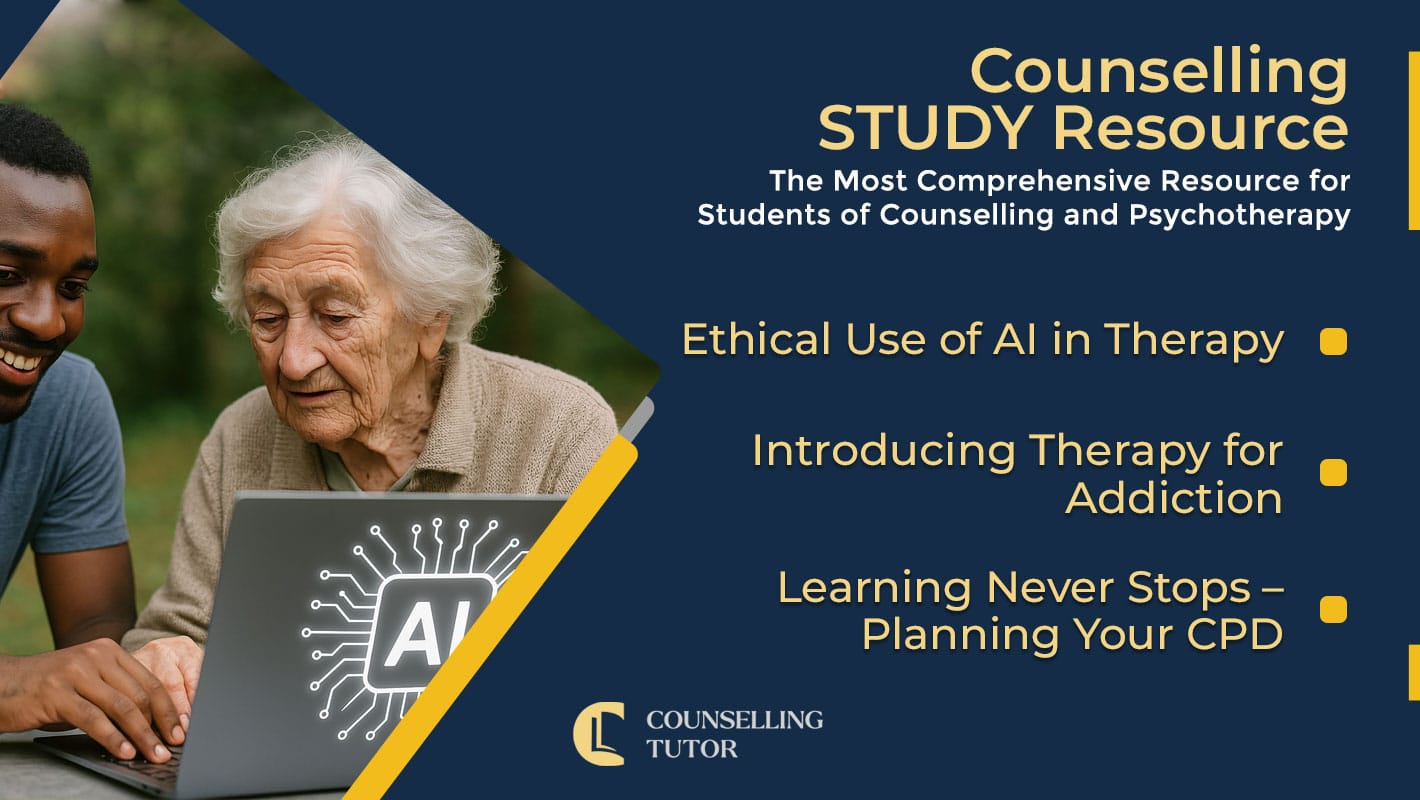See Counselling Skills Used in Real Sessions by Qualified Therapist
Real Sessions – Real Presentations – Real Skills
Gain the competence and confidence to use counselling techniques effectively!

In Episode 344 of the Counselling Tutor Podcast, your hosts Rory Lees-Oakes and Ken Kelly take us through this week’s topics:
Firstly, in ‘Ethical, Sustainable Practice’, we look at the ethical use of AI in therapy, highlighting potential risks and ethical responsibilities.
Then in ‘Practice Matters’, Rory speaks with Caroline Evers-Endacott about her lecture Introducing Therapy for Addiction – a vital area of practice that’s often underrepresented in core training.
And finally, in ‘Student Services’, Rory and Ken discuss how learning never stops in counselling – and why planning your CPD is essential as you qualify and build your therapeutic career.
Ken Kelly, joined by his digital twin “DigiKen,” opens the episode by exploring the ethical use of AI in therapy—how it’s quietly being integrated into practice, and the serious questions it raises.
Key points of this section include:

Real Sessions – Real Presentations – Real Skills
Gain the competence and confidence to use counselling techniques effectively!
In this week’s Practice Matters, Rory speaks with Caroline Evers-Endacott about working with addiction and her CPD lecture Introducing Therapy for Addiction.
Key points from the discussion:
Therapist tools Caroline highlights include:
Caroline also explores:

On-demand access to a rich lecture library covering theory, skills, and professional development for counselling students—Mapped to the UK awarding body criteria
“The Student Library has been BRILLIANT, I can’t recommend it enough!
It has been a lifeline in helping me prepare for practice and my first clients. If you’re considering it, go-for-it, it’s absolutely worth it!”
Kelly – Graduated and now in practice.
In this final Student Services of the season, Rory and Ken discuss how to make the most of your academic break by planning your continued professional development (CPD).
Key points include:
Ken and Rory encourage newly qualified therapists to:

Get on-demand Certified CPD that is implementable in your practice
